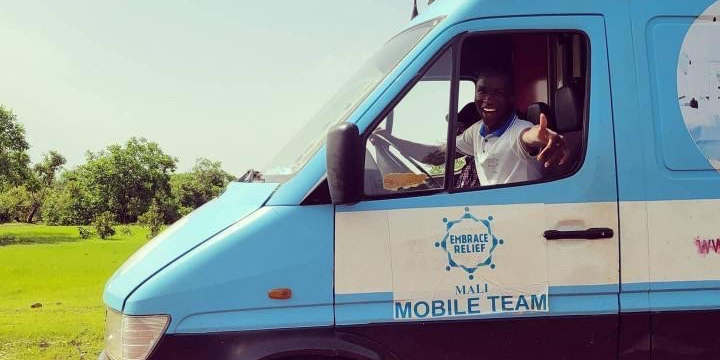Since 2013, we’ve been providing healthcare and cataract help to the millions of people in Africa currently lacking them due to living in areas of poverty, poor water, and food insecurity. This is especially true in sub-Saharan Africa where many people live hours away from the closest hospital, resulting in undiagnosed, yet treatable illnesses and diseases spreading, causing death, and greatly impacting the quality of people’s lives. The most prevalent of these debilitating diseases is cataracts, the leading cause of blindness in Africa.
Cataract Definition
So, what is a cataract, exactly? It’s a progressive disease of the eye(s) that causes severe blurry or discolored vision that can lead to complete blindness if not treated properly. It also interferes with daily activities and causes a person to have to relearn tasks such as how to navigate their home and village, eat, wash themselves, take care of their families, and live a fulfilling life. Cataracts also don’t only affect older people. Children can get them too (worldwide, an estimated 1.4 million children under age 15 are blind). Cataract symptoms are caused and worsened by the following:
- Prolonged exposure to sunlight
- Constant dust (prevalent in sub-Saharan African sandstorms) scratching the cornea
- Malnutrition (vitamin and mineral deficiencies accelerate vision loss
caused by glaucoma, cataracts, and/or macular degeneration)
How Embrace Relief Combats Cataracts in Africa
To combat cataracts in Africa and provide millions of people with the healthcare services they need, Embrace Relief created two programs in Mali where there are only about 13 doctors for every 100,000 people:
- Mobile Health Clinic
Our Mobile Health Clinic travels with certified volunteer doctors to remote areas of Mali where people have little to no access to healthcare to perform up to 30 cataract surgeries and hundreds of health screenings within two days. They perform health checkups on the first day, cataract surgeries on the second, and postoperative checkups on the third to ensure the eye(s) is healing properly.
If an illness or disease is diagnosed, the doctors guide the patient to the appropriate facility to receive the required treatment. If the patient can’t afford or doesn’t have access to the appropriate facility, Embrace Relief funds their transportation because they would otherwise have no way of receiving treatment.
2. Mali Medical Center
Currently, Embrace Relief and Project C.U.R.E have an ongoing partnership to provide medical equipment to the Clinic Gaoussou Fofana and Clinic Planet Vision in the capital city of Bamako, Mali, which has a population of over a million people. These clinics recently underwent an expansion of six new departments including ophthalmology, dentistry, gynecology, otolaryngology services (ear, throat, and nose), urology, and orthopedics.
With the new additions of departments, the clinics require newly upgraded equipment. Below are some of the equipment needed to have the departments fully up and running:
- Phacoemulsification Machine (used to perform laser cataract surgery)
- Operating Table
- Surgical Microscope
- Tonometer (used to assess the health of the eyes)
- Optical Coherence Tomography (used to photograph the retina)
- Yag Laser (used to treat eyes after cataract surgery)
- Anesthesia Machine
- Post-Mounted Lights
- Infant Ventilator
To perform a properly safe procedure, all equipment and instruments need to be sterile and the operating room has to be well maintained. Due to the ever-growing population and only two clinics to serve it, it is understandable that the facilities are struggling to keep up.
What We Have Accomplished
To date, our volunteer doctors have performed nearly 60,000 health checkups and 3,700 cataract surgeries in Mali, all of which were made possible by the compassion of our donors like you. But, unfortunately, there are still millions more who desperately need checkups and thousands who still need cataract surgeries.
How Much Does Cataract Surgery Cost and How Long Does It Take?
From the time a patient enters and exits a clinic, cataract surgery takes about two-and-a-half hours, though the procedure itself is only ten minutes. Also, cataract surgery recovery time can take anywhere between four and six weeks, though any soreness and discomfort should disappear within just a couple days.
The cost of cataract surgery is over $3,000 per eye, but a $100 donation through Embrace Relief sponsors one cataract surgery and 15 health checkups. And when you donate, you’ll receive a certificate in your name, in memoriam of someone, or in the name of a loved one as a gift within 15 days! The certificate will contain the information and photo of the patient whose life you helped change. So, please consider donating today to give people in Africa back the gifts of sight and health. After cataract surgery, they’ll be able to see their children’s faces again and no longer struggle daily to lead fulfilling and productive lives. Together, we can take the word “cataract” out of “Cataract Africa!”

